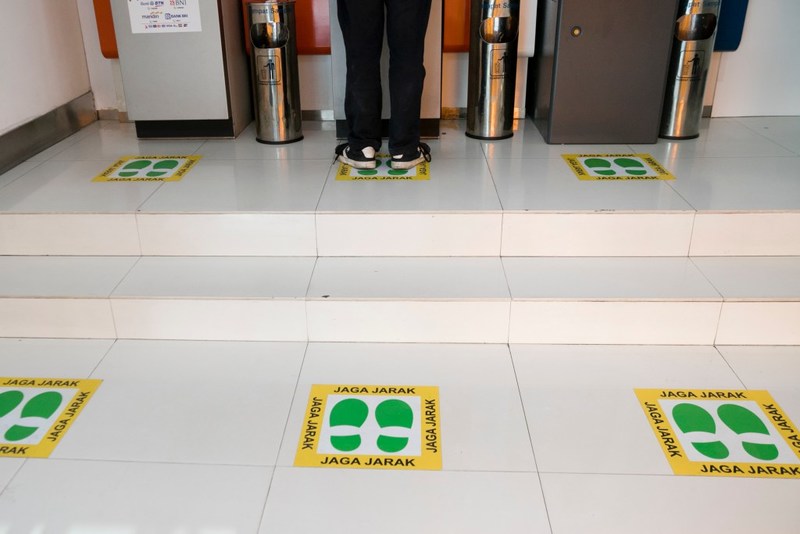
President Joko Widodo (Jokowi) asked for a simulation on easing large-scale social restrictions (PSBB) starting at the end of May, coordinating with the Task Force for the Acceleration of Covid-19 Handling to run four steps to run the country back to normal. On the other hand, Indonesia is still struggling to contain the virus with the emergence of new patients as well as the list of violations of social restrictions.
According to the limited meeting on evaluation of PSBB with President Joko Widodo on 21 May, Chairman of the Task Force for the Acceleration of COVID-19 Handling, Lieutenant General Doni Monardo had received the order to ease the large-scale social restriction by running four steps that measure precondition, timing, priority and coordination from central to the regional government.
The first is a precondition where the socialisation initiative will involve relevant experts including community leaders, scholars and cultural figures to ensure the determinative steps on easing the social restriction to the next step. "The precondition is expected to be through a series of academic studies, involving experts in the field of epidemiology, public health experts, including sociologists, public communication experts, and also of course medical experts, so that the calculations they submit can be analysed by the government,” Manardo said.
Second is the time for easing. Doni underlined his statement that loosening the restrictions cannot be done when the Covid-19) case curve has not been flattened. This step will involve community participation to make sure that the general public is ready. "If the region has not shown a downward curve, let alone a sloping curve, then it is not possible for the region to be given an opportunity to be eased. It should not be relaxed and have to stay under social restrictions," Doni stated.
The third step will look at the priority to determine the areas that will be given priority for easing. The priority will calculate the urgency and thorough decision to avoid negative reaction among the community. "What priority should we give? Whether in the food sector, especially markets, restaurants and related activities to avoid people not being laid off because we have to protect our community. These priorities must be strict options," explained Doni.
The fourth step is central and regional coordination to synchronise the containment effort from top to down level and make sure there is no possible spread in much larger regions in Indonesia.
The Enforcement of Large Scale Social Restriction in Jakarta
On Friday, 15 May, Jakarta city government confirmed that local Edi Al-Fitr exodus (mudik lokal) is prohibited in accordance with Governor regulation No. 22 in 2020 about Large -Scale Social Restrictions (PSBB).
Police authorities previously allowed Jakarta residents to go to their hometown to Jakarta Greater Area (Jabodetabek) by practicing strict precautions. Of course, this reality is contradictory to the regulation, forcing the government to withdraw the specific exception for local mudik. In specific cases, some people are still allowed to return to their hometowns with emergency matters. It also had to obtain permits from three agencies, including the Covid-19 centre, transportation agency, and police department.
Meanwhile, the authority has reported more 50,000 violations of large-scale social restrictions in Jakarta and its greater area. On Friday, Soekarno-Hatta International Airport saw the increase of passengers taking airlines to many different destinations in Indonesia. Based on the observation on 14 May, Jakarta protocol road remains quiet, but there is a rising number of personal vehicles from cars to motorcycles around 4.30 pm before breakfasting time (almost maghrib) during this year’s Ramadan. Even though the mobility of the residents is much lower, many people are flocking to buy some snacks and takjil around the neighborhood.
On 15 May, Indonesia reported 33 new deaths of Covid-19 making the country lose 1,076 people. From a total of 16,496 cases, the government also reported 3,803 people have recovered from the virus.







